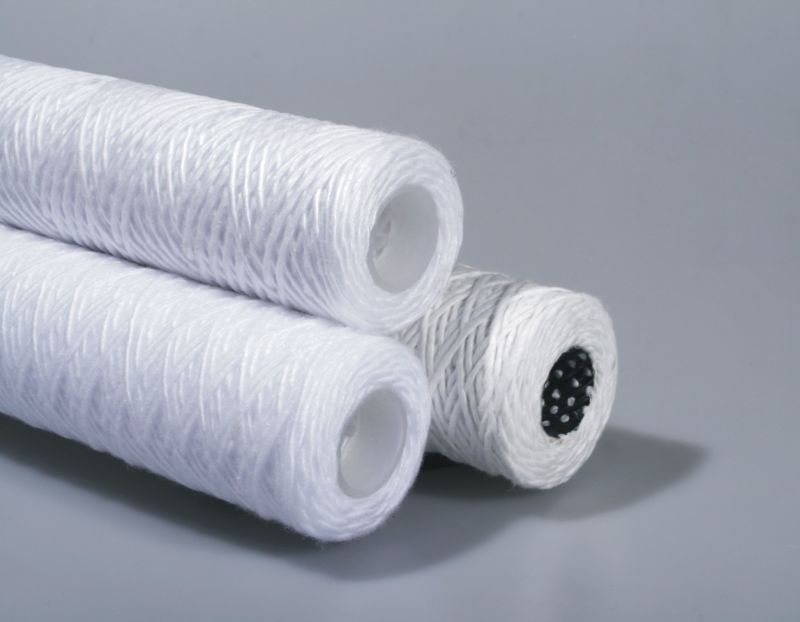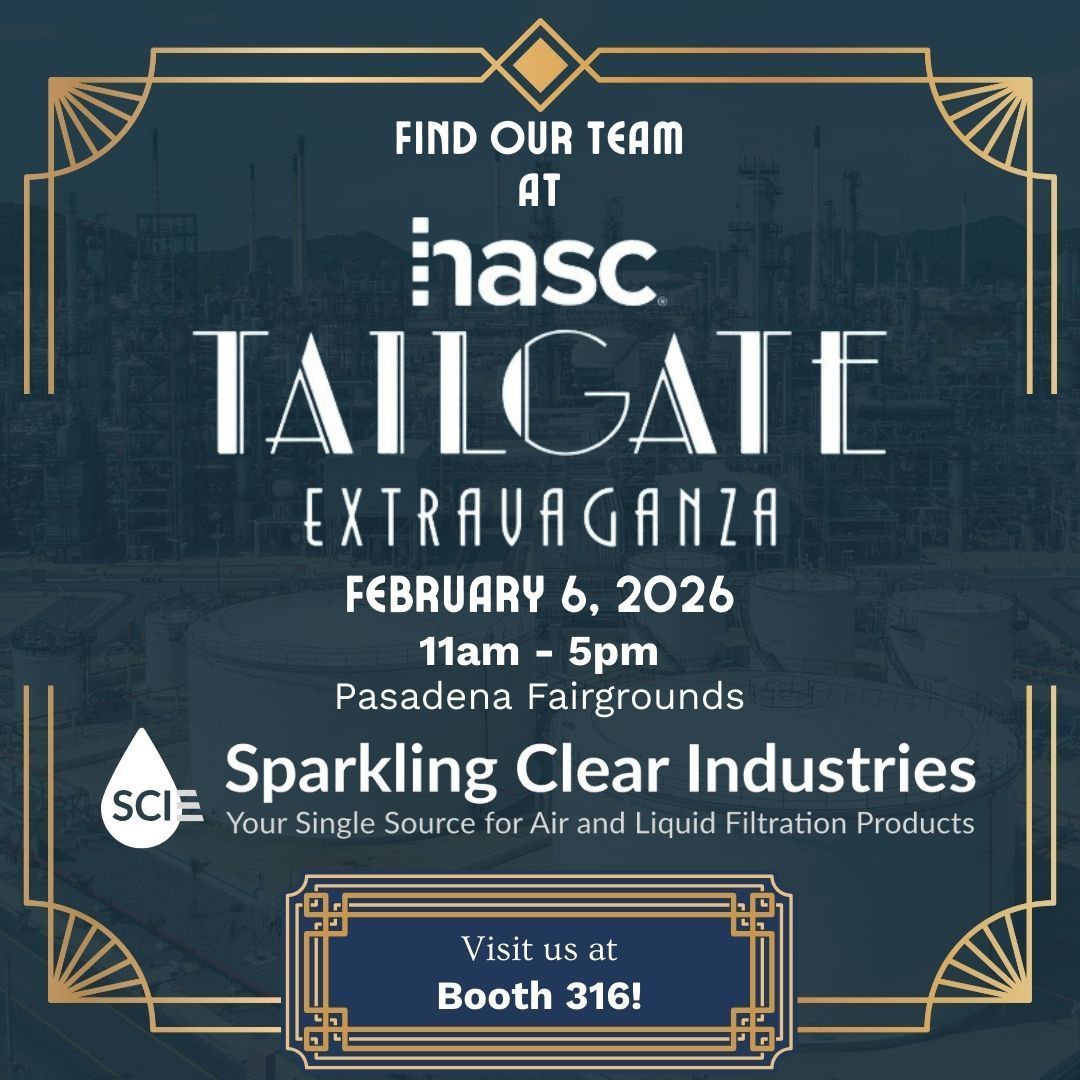How To Choose Filters For Your Liquid Filtration Process
December 12, 2022

Liquid filtration is an essential step in many industrial and manufacturing processes. Organizations can successfully remove unwanted particles and microorganisms from liquids and fluids using consumable cartridges or bags inside the filter housings. Many filters are available, so finding the ideal model for your application is important.
What Are Industrial Liquid Filters?
A filter cartridge is a type of filter that can be made from many different materials and come in various sizes. You can use them to filter out nearly every type of solid contaminant from almost any type of liquid. All industrial liquid filters will have a micron rating. This is to determine the size of particles that will be retained. Depending on the design, the particles will be captured on the inside or outside of the filter element.
As more and more particles are trapped by the filter, the pressure difference across the filter increases. When this pressure difference reaches a certain point, the filter must be replaced or regenerated to prevent breakthrough or flow restrictions. Therefore, most filters are consumable items, even though they are housed in the permanent filter housing.
What to Consider When Choosing Filters
- Particle size
The smaller the micron rating, the smaller the solid particles that will be prevented from passing through liquid filters.
- Quality requirements
Absolute filters are designed to remove 99.99 percent of particles that are a certain size or larger. These filters are often used in applications where a high level of filtration is required, such as in polishing stages, or when absolute filters are more expensive than nominal filters, they are often used as the final step in a multi-filtration process.
- Flow rate
The size of the filtering area will determine how quickly the liquid can flow through it. This is also affected by the filter material's thickness and the liquid's viscosity. If the filter is too small or the material is too thick, it will slow down the flow rate. It's essential to choose a filter slightly larger than needed to handle any surges and not become a bottleneck for the rest of the system.
- Pressure
The pressure of the pump determines the flow rate. However, the pump must not exceed the filter's maximum operating pressure. If it does, the filter will be damaged. The pressure should be one-third higher than the maximum operating pressure to prevent this. Over time, the filter will become clogged and need to be replaced or regenerated. The replacement and regeneration periods can be extended if the filter is sized correctly.
- Dirt load
Some liquids will contain a large number of solids, which will need to be considered when selecting filters. In cases of high solid loads, multiple filters with progressively smaller micron ratings may be necessary, as well as an absolute filter for the final stage.
- Temperature
The temperature of the liquid being filtered can impact the viscosity and flow rate of the liquid. The choice of the filter can be affected by the location of the solid/liquid separation technology. The filter should operate in humid, heated, or outdoor environments and at five °C above and below the average filtering temperature.
- Viscosity
The more viscous a liquid is, the more slowly it flows and the greater the filtered demand. When viscosity increases, filters should be more significant to ensure that the flow rate is not adversely affected.
- Chemical compatibility
The material of the filter must be able to work with the liquid it is filtering. If the filter breaks down, it can cause contamination instead of preventing it. All parts of the filter, like the adhesives, seals, and filter media, should be checked to ensure they work well together. Even filters that look the same, like polypropylene and polyester cartridge filters, can have different parameters regarding temperature and chemical compatibility
Conclusion
There are many different types of filters available on the market. The best filter for your liquid filtration process will depend on several factors. If you are unsure of which type of filter to choose, it is always best to consult with a filtration expert who can help you select the best option for your needs.
Sparkling Clear Industries offers commercial air and liquid filtration solutions to increase performance and maximize savings for your team. Based on the Texas Gulf Coast, we offer an extensive collection of industrial-grade filter media tailored to your specific project requirements. If you need industrial filtration systems, we’ve got you covered! Get in touch with us today and let us know how we can help!
Share this Post!

Sparkling Clear Industries is heading to the HASC Tailgate Extravaganza, and we’re looking forward to connecting with industry peers at one of the region’s most anticipated safety-focused events! 📅 Friday, February 6, 2026 🕛 Booths open at 11 AM 📍 Pasadena Fairgrounds The 2026 Tailgate theme, The Golden Age of Safety, is a fitting one. It’s a nod to an era defined by craftsmanship, reliability, and pride in doing things the right way—values that still matter today, especially in industrial environments where safety and uptime go hand in hand. If you’re attending the Tailgate, we invite you to stop by Booth 316. We’ll be happy to talk industrial filtration , reliability, and safety—and grab a steak popper or street taco while you’re there! 🌮 Registration to attend is not required. This free event is open to industry, so bring your colleagues for a day of celebration, safety, and fun! Discover more information here: https://www.hasc.com/tailgate/

As we wrap up the year, we want to take a moment to say thank you. To our customers, partners, and friends: we’re grateful for the trust you place in us and for the relationships we’ve built along the way. To our team: thank you for the hard work, dedication, and teamwork that make Sparkling Clear Industries what it is. We hope the holiday season brings you time to slow down, enjoy the people who matter most, and recharge for the year ahead. From all of us at Sparkling Clear Industries, we wish you a Merry Christmas and a safe, happy New Year!


